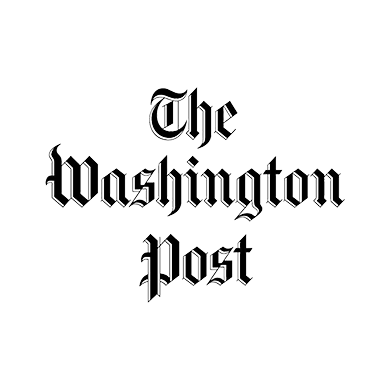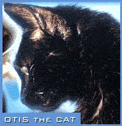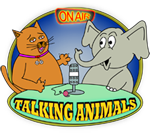 In doing so, he recounts his formative years, living amidst assorted animals, an
In doing so, he recounts his formative years, living amidst assorted animals, an  important and impactful experience that he re-created when raising his own kids. Clearly a serious and accomplished photographer, Walsh explains that one outlet for his photos is the entity he created (https://hobartrivuletplatypus.org/) to raise awareness of, and help protect, his beloved local platypuses.He seeks to describe the platypus, a singular animal found only in Australia, and one that appears to have been designed by a committee that had considerable trouble agreeing on key characteristics—for starters, it’s a mammal that lays eggs, a furry-coated critter with a duck bill. After touching on the medical condition that’s not an insignificant facet of the film—in that it seems to serve as a catalyst for Walsh spending
important and impactful experience that he re-created when raising his own kids. Clearly a serious and accomplished photographer, Walsh explains that one outlet for his photos is the entity he created (https://hobartrivuletplatypus.org/) to raise awareness of, and help protect, his beloved local platypuses.He seeks to describe the platypus, a singular animal found only in Australia, and one that appears to have been designed by a committee that had considerable trouble agreeing on key characteristics—for starters, it’s a mammal that lays eggs, a furry-coated critter with a duck bill. After touching on the medical condition that’s not an insignificant facet of the film—in that it seems to serve as a catalyst for Walsh spending  more time at the body of water (“rivulet”), where he first sees the female platypus
more time at the body of water (“rivulet”), where he first sees the female platypus that becomes his friend. He named that platypus Zoom, and spends a portion of our conversation tracing the unfolding friendship with her, which he chiefly attributes to the animal’s curiosity, but may well go beyond that, given that she continued to approach him, like she was indeed visiting a friend. We touch on a number of other subjects—while striving to avoid spoilers, with the U.S. premiere “The Platypus Guardian” not offered until the Oct. 18 showing on “Nature”—including how Walsh, a soft-spoken fellow, transformed into a vocal activist and public speaker, guiding efforts to clean up the trash in the waterway, pieces of which can imperil the platypus by wrapping around their bills. In closing, we addressed Walsh’s observation that concluded the film: “I thought I was looking after nature, but, really, it was nature looking after me.” [Photos: Pete Walsh by Wildbear Entertainment…Close-up of platypus by Pete Walsh…Platypus in front of waterfall by Daniel Van Duinkerken…Walsh joined by platypus friend by Wildbear Entertainment] (https://www.pbs.org/wnet/nature/, https://www.facebook.com/PBSNature, https://www.instagram.com/pbsnature)
that becomes his friend. He named that platypus Zoom, and spends a portion of our conversation tracing the unfolding friendship with her, which he chiefly attributes to the animal’s curiosity, but may well go beyond that, given that she continued to approach him, like she was indeed visiting a friend. We touch on a number of other subjects—while striving to avoid spoilers, with the U.S. premiere “The Platypus Guardian” not offered until the Oct. 18 showing on “Nature”—including how Walsh, a soft-spoken fellow, transformed into a vocal activist and public speaker, guiding efforts to clean up the trash in the waterway, pieces of which can imperil the platypus by wrapping around their bills. In closing, we addressed Walsh’s observation that concluded the film: “I thought I was looking after nature, but, really, it was nature looking after me.” [Photos: Pete Walsh by Wildbear Entertainment…Close-up of platypus by Pete Walsh…Platypus in front of waterfall by Daniel Van Duinkerken…Walsh joined by platypus friend by Wildbear Entertainment] (https://www.pbs.org/wnet/nature/, https://www.facebook.com/PBSNature, https://www.instagram.com/pbsnature)

ALSO: I spoke briefly with Sherry Silk, CEO of the Humane Society of Tampa Bay, seeking her perspective and analysis of this monumental controversy involving the SPCA Tampa Bay. That organization’s CEO, Martha Boden, recently unveiled a plan whereby the SPCA Tampa Bay will forge an alliance with Pinnacle Pet, a dog breeding operation headquartered in Missouri, and Sunshine Puppies pet stores. This announced alliance has generated outrage from a growing number of local and national animal welfare organizations–including calls for Boden’s ouster—while local and national media outlets have flocked toward covering the story. Silk and I discuss the improbability of such a gambit, and how it flies in the face of the “adopt, don’t shop” philosophy espoused by animal shelters (and SPCA Tampa Bay is an animal shelter), rescues, and animal advocates of various stripes for decades. Silk notes she spoke with Boden, and the conversation did go anywhere fruitful. Indeed, more broadly, despite all the outrage and criticism, it appears SPCA Tampa Bay has doubled down on its puzzling position. Among Silk’s suggestion for taking action on this matter were to contact Boden ([email protected]) &/or the SPCA Tampa Board ([email protected]) and voice your concerns and criticisms.
COMEDY CORNER: Richard Jeni’s “Platypus Man”
MUSIC: Rebekah Pulley’s “Talking Animals Theme,” instrumentals
NAME THAT ANIMAL TUNE: We didn’t play “Name That Animal Tune” today.
AUDIO ARCHIVE:
Listen Online Now:



